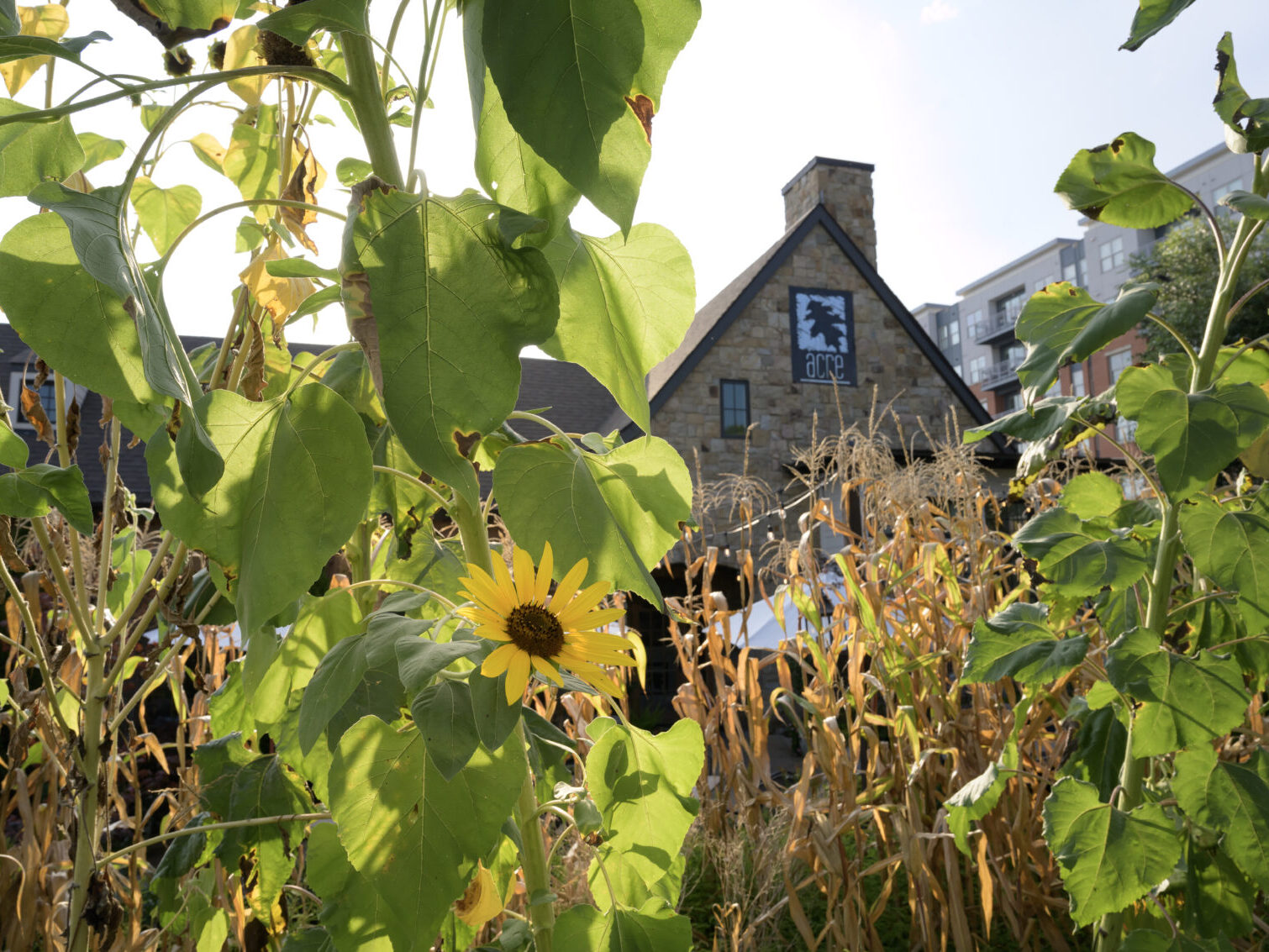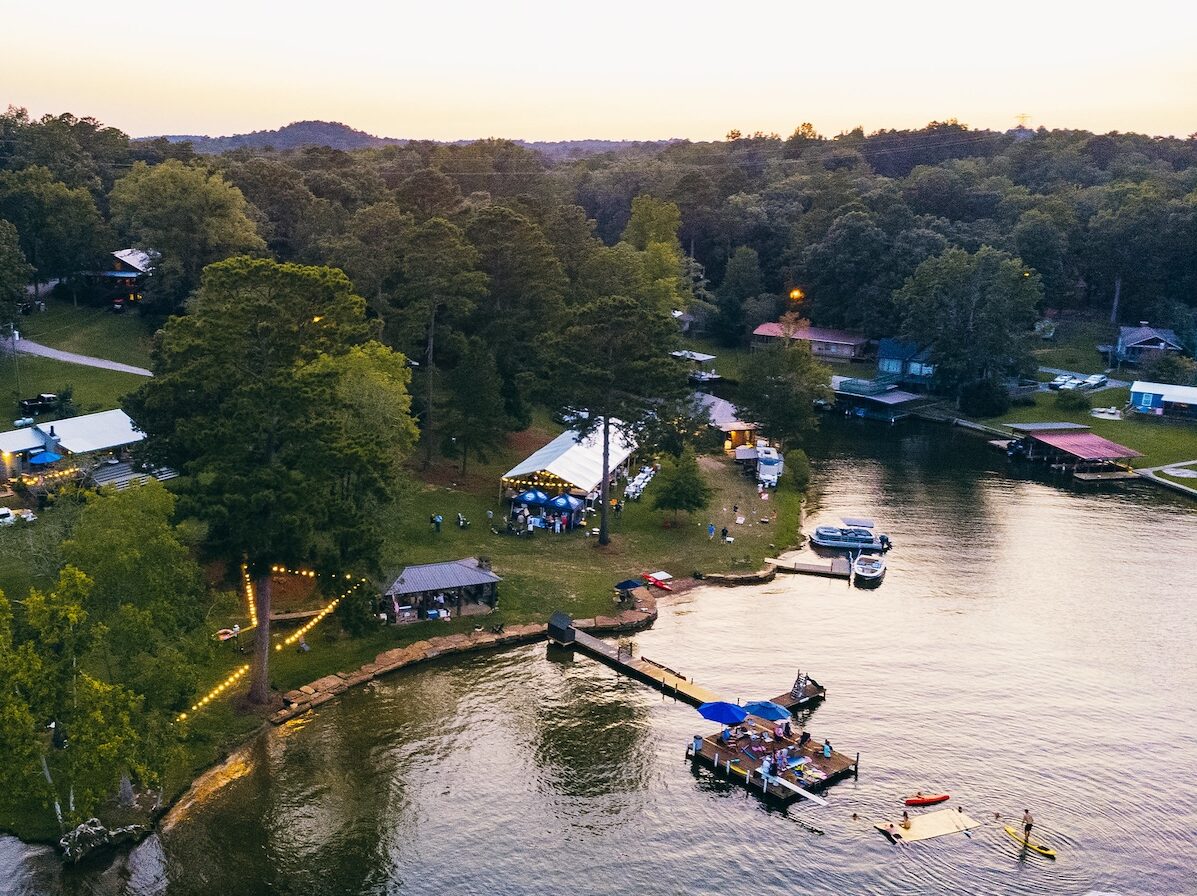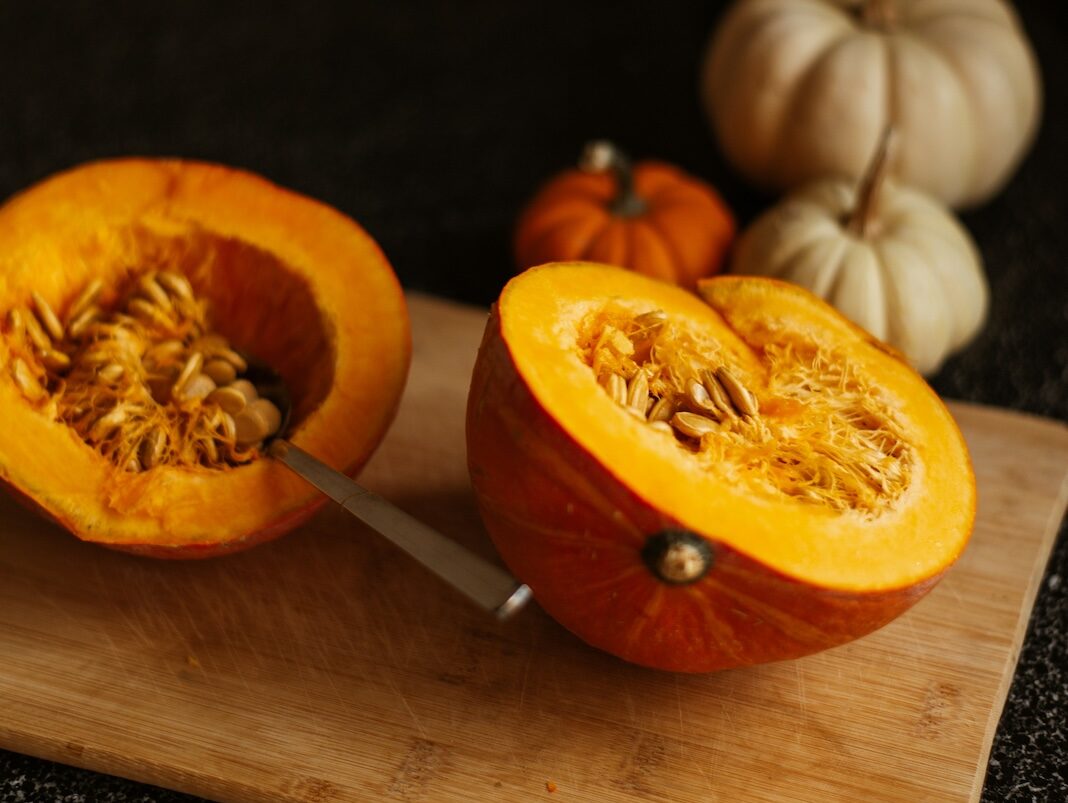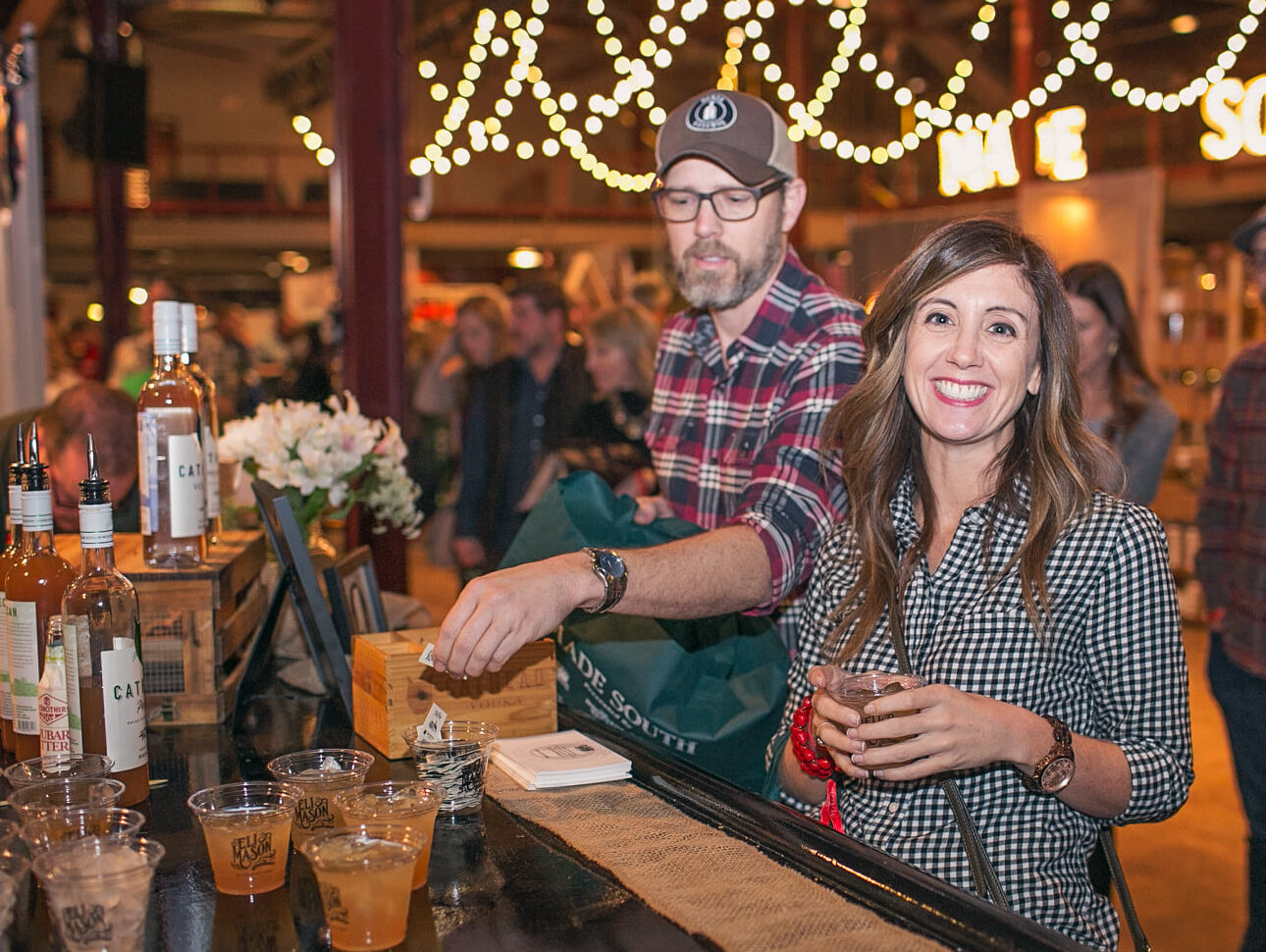This story first appeared in Magnolia & Moonshine.
Chef David Bancroft turned to his heritage and a deep respect for family tradition when creating his Auburn restaurant.
With the onset of fall, the cornfield has gone gold — just outside the commanding stone structure of Acre restaurant in Auburn, Alabama. While the stalks wither in the wait-for-winter dormancy, pear trees around the property are still heavy with fruit, and olive, oak, and maple trees cling to their foliage for a bit longer. Behind the restaurant, a beloved bay leaf generously adds to the flavors of Chef David Bancroft’s culinary creations.
Every plant, bush, and tree has been purposely positioned to take advantage of each corner of the restaurant’s acre plot, a head
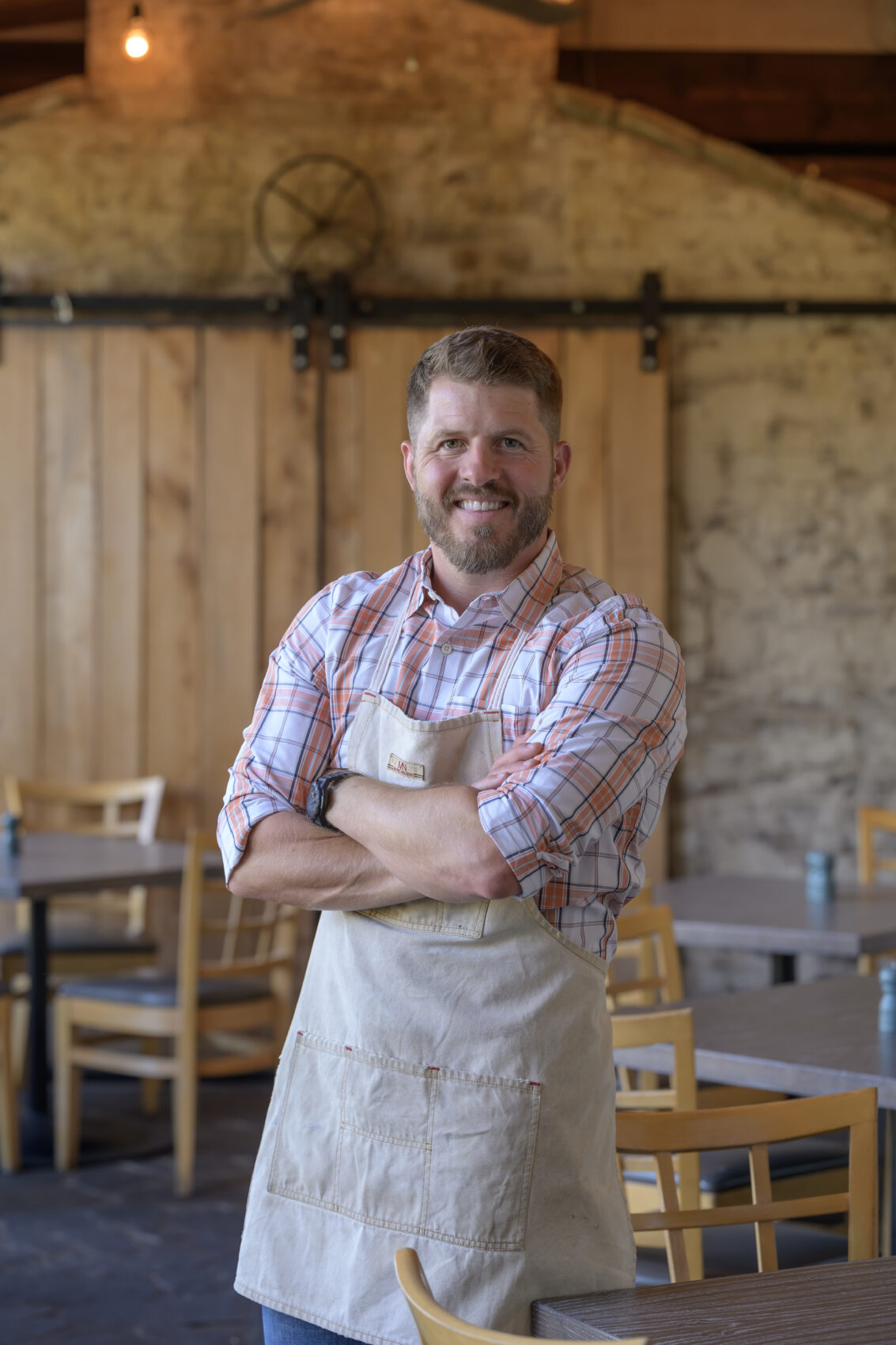
(Magnolia and Moonshine/Contributed)
scratcher for members of the city’s zoning board accustomed to requests for boxwoods and knockout roses in their busy business district. David proposed blueberry bushes, pear trees, and watermelon and tomato vines to make the most of what the land has to offer, an affinity the chef has felt throughout his life.
As a child, David grew a connection to the land in much the same way an acorn, exposed to the elements, opens and sends out deep roots for a firm hold as it dives through rich soil. Much of that link to the outdoors and its bounty sprouted from his own family tree, with his paternal grandfather’s farming labors and his mother’s expertise as a Japanese and Asian lotus grower.
But David had a dash of something else that started early and drove his curiosity to try new foods and even preparation. By fifth grade, he was making beef and deer jerky to sell in the school cafeteria.
As a teen, he took over as the family grill master to improve the “hockey-puck” patties served as burgers. David started barbecuing at 14 or so and cooking briskets around 16. Instinctually, he knew he could elevate the flavor profile and improve timing and texture.
“I was teaching myself how to do these things, including catching fish and doing family fish frys too,” David says.
“I think it came mostly from the way I was raised,” David says. “And all the experiences of being outdoors and fishing with my grandparents and riding around on Grandpa Kennedy’s farm (in Hartford, Alabama). I would watch my grandmothers cook in the kitchen — cooking true Southern style meals and serving on long tables.”
When, as a young boy, David’s family moved to San Antonio, he watched ranchers and cowboys coming together into a culture of Texas-style barbecue combined with Mexican dishes.
“It was such a melting pot of Southern cuisine, Texas culture, and Mexican influence,” he recalls. “And obviously coastal cuisine — all that blended together, and I just could never get enough.”
After studying finance and accounting at Auburn, David thought he might follow in his footsteps into hospital administration. But when his fraternity voted him kitchen steward, it was evident he needed to realign his trajectory.
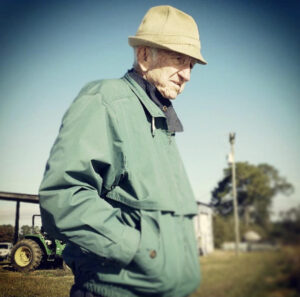
(Magnolia and Moonshine/Contributed)
That’s when he seriously began considering the family farming business and his ties to land.
“My great-grandpa was the businessman, and when Grandfather took over the farm, he started raising cattle, chickens, and peanuts, but his passion was fish farming — catfish and tilapia.”
Grandpa Kennedy (David’s maternal grandfather) opened a fresh fish market in a house next to the farm. Eventually, the market transitioned into the 10 Mile Creek Farm restaurant. “I was just blown away. I thought, ‘This is unbelievable. We have a restaurant.”
His grandfather hired staff to run the restaurant and built a cinderblock tank with an aerator outside. Much like the live lobster tanks in seafood spots, the catfish would swim one minute, then be scooped up, cleaned, cooked, lightly seasoned, and served the next. Not only were Grandpa Kennedy’s the freshest, but they were also among the cleanest anywhere. A visionary, when he built his fish farm, he elevated the growing catfish in baskets to keep them off the pond bottoms. Grandpa Kennedy was a banker, a fish farmer, a cattleman, a restaurateur, and a land developer.
He also cured catfish in a small cinderblock smokehouse on the farm.
“People would drive for miles to get smoked catfish from him,” David says. Grandpa
was the all-encompassing package of outdoors, where his farming and agriculture background met the center of the plate at a restaurant – truly farm to table.”
David’s paternal grandfather, Bob Bancroft, took him fishing around the Orange Beach area and Fairhope, where they created memories together late at night on push boats lighted for flounder gigging.
Having soaked in experiences and flavors during summers at the farm and the beach, and during school years in Texas, David wants his children to enjoy the same outdoor opportunities.
“I’m passionate about all those things, and they are intentional things that I’m teaching my children,” David says.
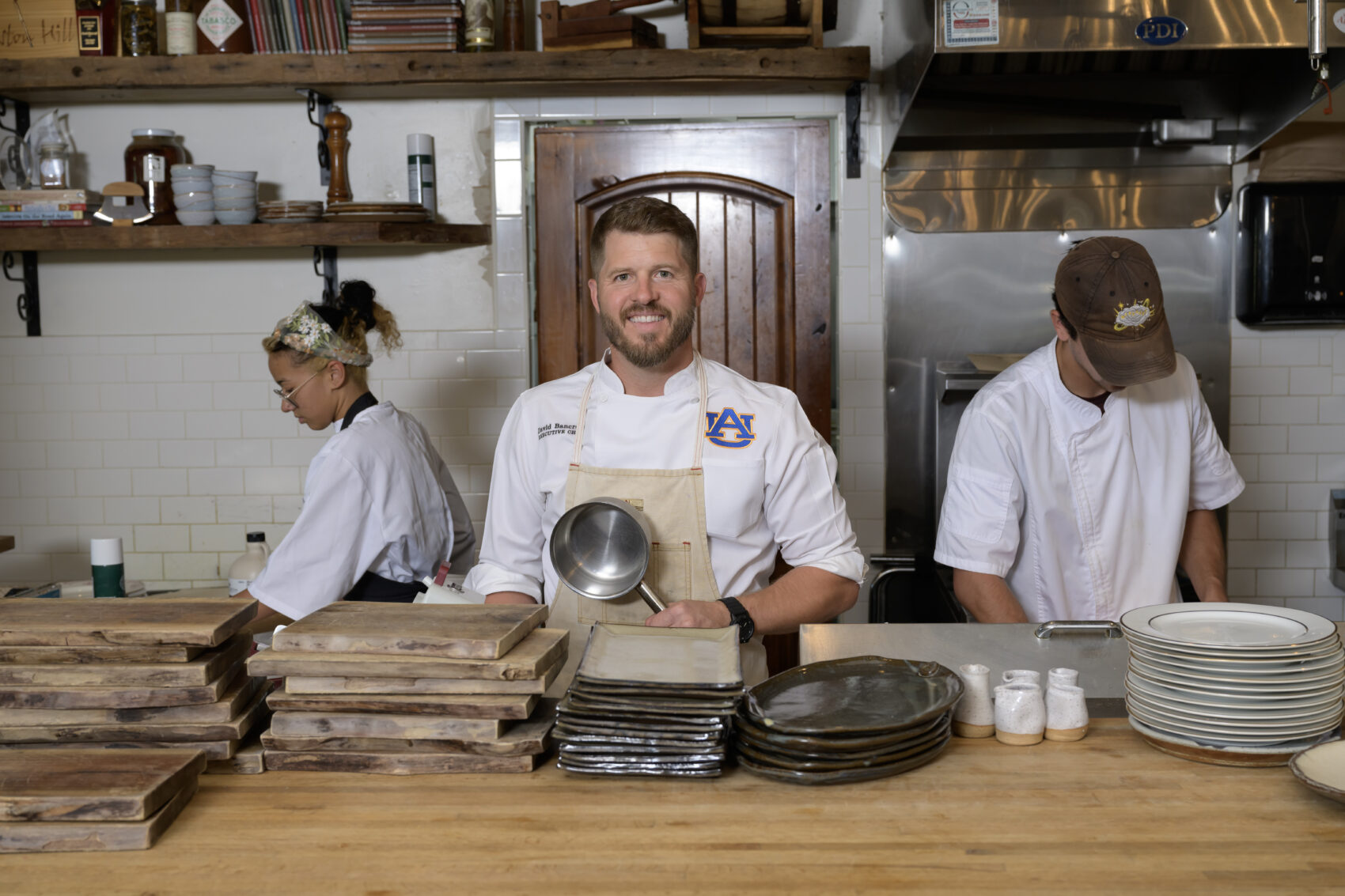
(Magnolia and Moonshine/Contributed)
The chef and father of two met his wife, Christin, at Auburn University, just as his parents met while attending there in the 1970s. Despite seeing his grandfather open a restaurant, David said it was “never really the plan” for him. However, as a junior at Auburn, he mentioned to his father that he might like to attend the Culinary Institute of America in New York —something he never did. Instead, David took a year off to try working in a restaurant — to experience it fully. When the head chef and sous chef quit soon after, he was suddenly head chef at a whopping $11 an hour, and the owners gave him the go-ahead to experiment, with the caveat not to lose a lot of money.
“I started buying food from literally all over the planet,” David says. “I was buying fish from Australia and Japan, kangaroo, elk, ostrich, emu — and I taught myself culinary skills in that kitchen. Unbelievably, people just started lining up out the door. And many of the cooks and sous chefs on that team went on to be chefs and restaurateurs.”
Armed with experience, recipes, ideas, and a never-ending hunger for food and flavor, David and Christin drove north to Birmingham for dinner at Frank Stitt’s uber-successful Highlands Bar & Grill.
“I was in there just picking the menu apart — not critiquing anything but discovering,” David says. “I would say look how he did this.”
After returning to Auburn from that experience at Highlands, Christine told him, ‘You know what to do.’ We started flipping through the Yellow Pages to find local farmers and producers. It just came together by thinking about how Grandpa did it: ‘Well, I used their corn meal, and I traded butter beans with them, and we did peas with this family, and they wanted catfish, or they leased my land so they would bring the venison, and we’d have deer meat on the table. It was a total co-op. That concept is what bled into all of the farm-to-table food at the beginning of Acre.”
Acre pays homage to all things Alabama with a touch of Texas. But David opened a second restaurant, Bow and Arrow in Auburn, to showcase the influence of Texas on his palate — from serving scratch-made tortillas to brisket tacos and hand-pressed margaritas.
“With two restaurants up and going, our team is just booming and bursting at the seams, which is awesome,” David says. “And we have amazing leadership at both restaurants. Between the two restaurants, we have over 140 employees.”
With son Walker, 12, and daughter Kennedy, 10, the Bancrofts are working to fit in Little League for one and cheerleading for the other — competitive dance, travel baseball, peewee football, and, high on the priority list, spending time in nature. Both children are hunters and are learning what the land gives and how it nourishes body and soul.
It all goes back to David’s lifelong connection with the land. The restaurant has secret garden areas all over its acre — lemons, blackberries, Arbequina olives, apples, plums, peaches, figs, persimmons, Cherokee Purple tomatoes, hot peppers, strawberries, Valencia oranges, and Key limes. “So, all of that is me tapping into Grandpa style and using every inch of land,” David says.
“My main objective when building and designing the restaurant was for it to look lived in and to have accessibility for me to walk around and tell intentional stories,” David says.
Engaging his cousin as an interior designer, David brought all of the elements to her and asked her to help him realize his vision. In the front dining room, a fish basket from Grandpa Kennedy’s fish farm takes pride in being a repurposed chandelier. A photo of an old general store in nearby Crawford depicts the source of the wooden beams in Acre — when the siding was pulled from the structure, an authentic log cabin was revealed beneath. Those logs now make up the restaurant’s central bar. Floor-to-ceiling oak walls (constructed from straight oaks grown on the family farm and handpicked by Grandpa Kennedy and David) evoke memories of days on that farm.
“My vision has become reality, and there are lots of opportunities for me to walk around and story-tell,” he said. “Everywhere you look, you’re surrounded by these memories — they infuse the whole restaurant. That’s an amazing feeling.”
